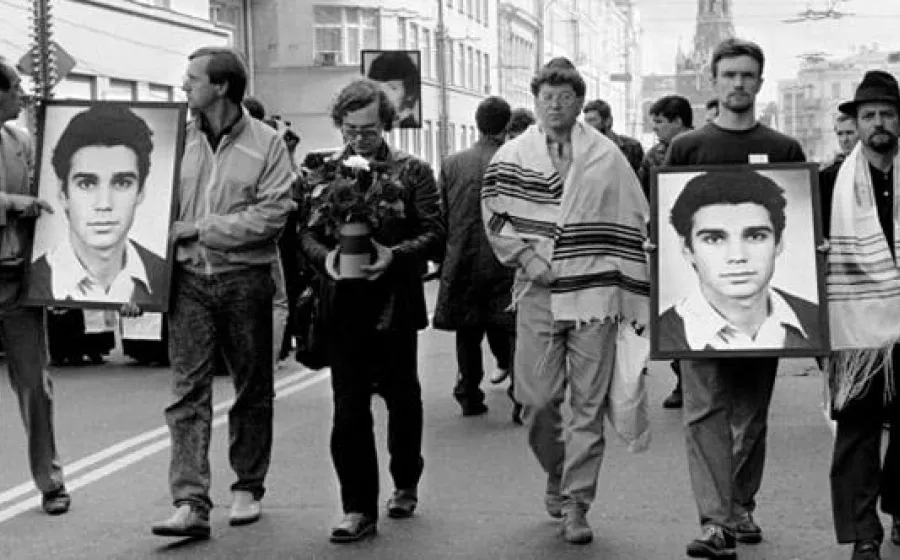CONSTRUCTING A GAZE
A Course on Ryszard Kapuscinski
Date
21
24 May 2013
Venue
Casa del Lector
Price
20€
Institution
Casa del Lector
Ryszard Kapuscinski’s work starts to come into order when one understands that the newsroom reduces the complexity of the world to a “superficial abbreviation”. Your challenge, then, consist of going further into it in order to get to the truth of things through writing strategies. It is essential to be where the stories are taking place. However, we must also maintain a necessary distance so as not to be devoured by reality. This permanent tension, between giving an account of what is happening now and the need to put it into context, runs through all of the Polish reporter’s work.
Reporter? It is difficult to categorise his work. His mastery in telling you about things is closer to literature and his eagerness to understand them forces you to work as an analyst of history, thought and translation. He is, above all a traveller. And his legacy is found in his books. “Every writer desires to create a good text”, he once said. The only way to get to know Ryszard Kapuscinski is to go back to them.
The aim of this workshop is to dive back into the paths he treaded and reconstruct most part of the story (the stories) of the second half of the twentieth century: Africa and Latin America, the fascination with Haile Selassie’s power, the fall of the Persian Shah, the breakdown of the Soviet Union. There are a lot of stops on the way to conquering the most difficult, a personal voice.
Program
1) The Polish Journalist’s writings. Biographical details. The Kapuscinski constellation. 1. Poland. 2. Asia. 3. Africa. 4. Latin America. 5. The Middle East. 6.Ethiopia. 7. Iran. 8. The USSR/Russia. The traveller, the reporter, the narrator, the historian, the thinker. The report as a story on the present. The shock of the second half of the twentieth century.
2) How do you tell a story? The cable text versus the newspaper. First trips around Poland: the story, the landscape, the characters. First trips: a foreigner in Rome. Narrative strategies: the puzzle of voices, the piecemeal approach, story collections, diary and notebook entries, reports, text analysis, the excerpt. Keeping a distance from the eye of the storm.
3) A journalist’s job: How do we give an account of the world? Context and “being there”. Poland leaves the Second World War. First steps: contact with India and China. Africa: the end of colonialism and lost opportunities. An x-ray of power (Haile Selassie). Latin America: the challenge, and complications of changing the world. News on Palestine. The fall of the Shah of Persia. The breakdown of Socialism: case study of the USSR.
4) Man in the world. Is lying to tell the truth ok? Herodotus as a model. Oral narration’s claim. The writer’s tools and the journalist’s rules. The relationship with power. The weight of one’s own ideology and the limitations that reality imposes. Kapuscinski and the legend’s chiaroscuro: Artur Domoslawski reconstructs the adventures of the character. Triumph or Failure?: conquest and a personal voice.
Objectives
Kapuscinski is one of the greatest journalists of the twentieth century, despite recent questions having been raised about whether some poetic licence is allowed in a reporter’s work. The workshop aims to reconstruct the routes that he travelled in order to gain an insight into a view that is so personal, a style that is so powerful and to analyse to what extent the critics of his work are right.
Faculty
José Andrés Rojo (La Paz, Bolivia, 1958) currently working on the comments section of EL PAÍS, newspaper. He started off here in 1992 when he was responsible for the supplementary publication Babelia. Between 1997 and 2001he was the coordinator of their book pages and from 2001 until 2006 he has been director of the newspaper’s cultural section. He graduated in Sociology from the Universidad Complutense, he has published Hotel Madrid (Fondo de Cultura Económica, 1988), an essay on Peter Gabriel (Cátedra, 1994) and Vicente Rojo. A portrait of a republican general (Tusquets, 2006), XVIII Premio Comillas. He has also worked at El Urogallo, Vogue and Teatra and collaborated on La Luna, El Europeo as well as on the weekly Independiente. Currently he has a blog, El rincón del distraído, on the digital edition of El País.
Sign up here.
Sign up here.

